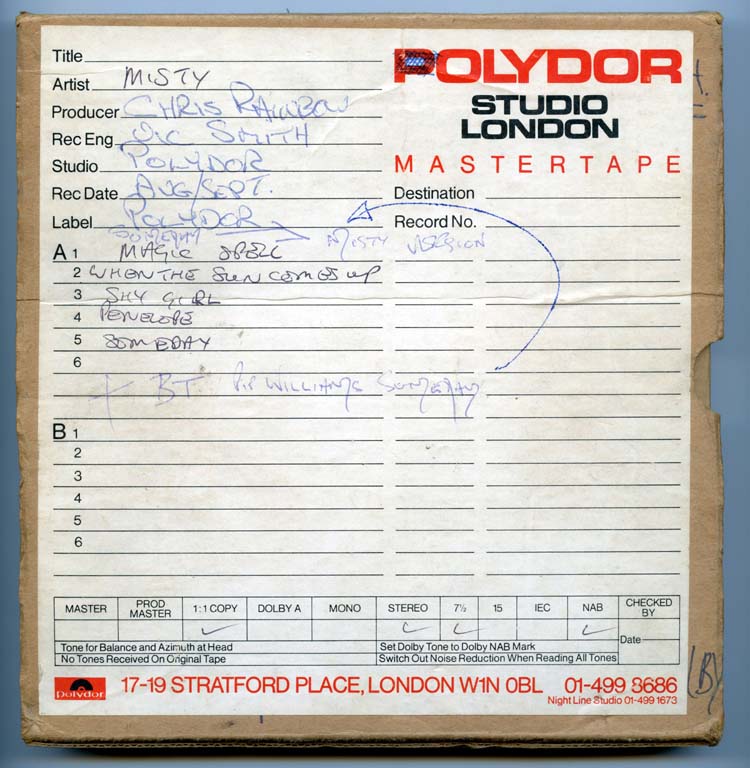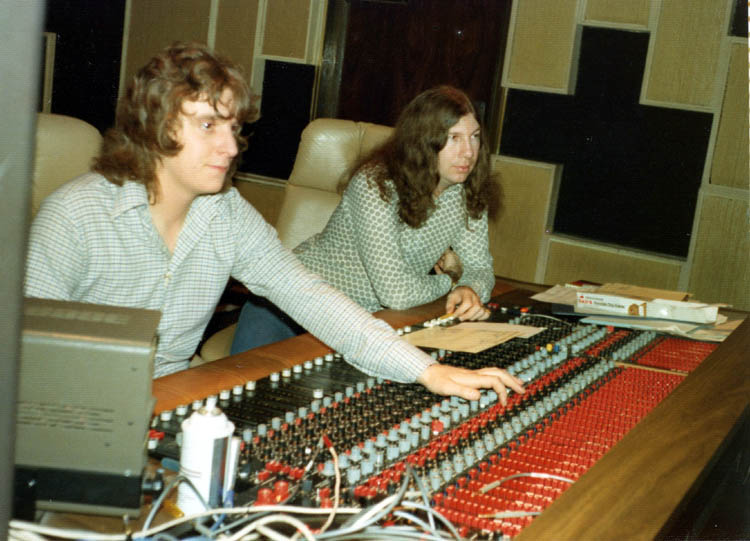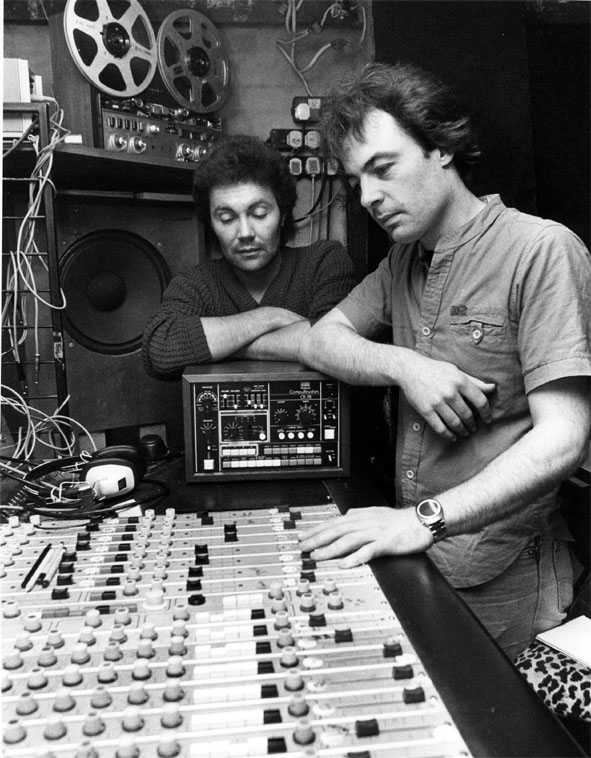Name
Origin
& History
It was a considerably more than Twenty Years ago that Sergeant Pepper taught his titular band to play. But what became of the generation of bands and musicians inspired to take up their instruments by Lennon and McCartney's call to arms during the 1980's. ?
The Early 1980's saw a volcanic hotch potch of creative energy hubbling and bubbling in Bournemouth as a variety of live music venues sought to provide the young wannabees with a platform for their talents. However beneath the red hot strata of clubs and pubs like Upstairs at Erics, Midnight Express, The Third Side, Glasshoppers, The Moat House, The Pinecliff & The Academy lay the musical bedrock that was nurturing the dreams and aspirations of the new breed of songsmiths into a hardcore vinyl reality.
That bedrock was a claustrophobic underground recording studio in Norwich Road at the back of the Triangle called 'Misty Studios'. To set the scene we need to turn the clock back another 5 years to 1974 , the year the Bees Gees released Jive Talking, two years before Night Fever would set the world alight with a Disco Inferno that still reverberates to this day. That was the year that destiny (cunningly disguised as 'Manpower') brought together two intensely ambitious writers to stack sheet metal at the Devilbiss paint equipment manufacturing plant at Ringwood Road. The rest as they say is Rock & Roll history and it went something like this ....
.jpg)
1974 - Mark Eden and Micky Fudge form a duo called 'Cherish' and start recording demos of their songs on a 2 track Revox tape recorder in Mark's shed at the bottom of his garden before making their debut at Christmas variety show at the Maison Royale
.jpg)
March 1976
- With the
addition of John Lee, an old school friend of Micky on bass , Dick
'Fingers' Shutler on keyboards and Rick Parsons on drums 'Cherish'
takes inspiration from the Clint Eastwood movie and change
their name to 'Misty' and head off to tour the American airbases in
Germany
.jpg)
In the meantime manager (Don Hurley) negotiates and signs band to Polydor Records and WEA publishing off the back of demo tape sent to Alan Black ~ head of Polydor A&R and Radio 1 DJ . Band receive £3000 advance from Polydor
August 1976 ~ Sessions with Producer Chris Rainbow ('Give me what I cry for' fame) are rejected by Polydor.

1976 - 'Misty' subsequently spend a month at Richard Branson's newly opened Manor Studios in Oxfordshire with Producer and arranger Pip Williams (Kiki Dee, Moody Blues, Status Quo) recording a stunning album featuring a 30 piece orchestra. Pip opts to utilise his own session drummer (Mike McDonald ex-King Crimson) and bass player. as the rhythm section.

Pip Williams and engineer
John Eden (no relation)
.jpg)
1977 - Polydor release three vinyl 7" singles by 'Misty' - two from the album ~ 'Someday' and 'Magic Spell' plus an 'Abba-esque' cover version of the old 60's hit 'Jesamine' by the Casuals produced by Kaplan Kaye in an attempt to present something ''familiar' to a fickle record buying public when singles do nothing despite some Radio 1 airplay
.jpg)
.jpg)
.jpg)
1979 - As punk/new wave continues to dominate the airwaves Polydor stable mates 'the Jam' proceed to have over twenty top 10 singles. Conversely Polydor drop 'Misty' without ever releasing the album. A classic case of right place - wrong time.
1980 - Investing money from his record advance and a loan from a friendly bank manager Mark Eden opens 8 track commercial recording studio at Norwich Road behind the Triangle in Bournemouth called Misty Studios. Over the next 3 years he engineers and produces virtually every upcoming band in Bournemouth.

1983 - As a result of corporate investment secured by Nigel Hopkins (of opportunity knocks fame) Misty Studios undergoes £70,000 refit and upgrades to a full fledged 24 track production facility with in house management, production and publishing division administered initially by by Ral Lofting (Magic Moon Records) and subsequently by former Misty bass player John Lee singer Micky Fudge and 'Prima Voice' (formerly 'the Accused') are first to acts signed to production roster.
1985-1990 Record releases by Prima Voice and Micky fudge fail to register
and Misty Studios flounders in recording industry recession as home
recording equipment becomes more affordable and commercial bookings dry up.
Mark Eden is recruited by John Parr ('St Elmo's fire' fame) and Misty Studio
client as his personal sound engineer and off the back of his global #1
record embark on tours of America opening for Toto , Bryan Adams and Tina
Turner on the North American leg of her 'Private Dancer' tour (the biggest
grossing American tour of 1985) performing in 75,000 seat stadiums .... No
pressure then given I'd never engineered a live concert in my life ? First
show in Houston, Texas in front of 6000 people opening for Toto .... How
difficult can it be ?
%20web.jpg)
.jpg)